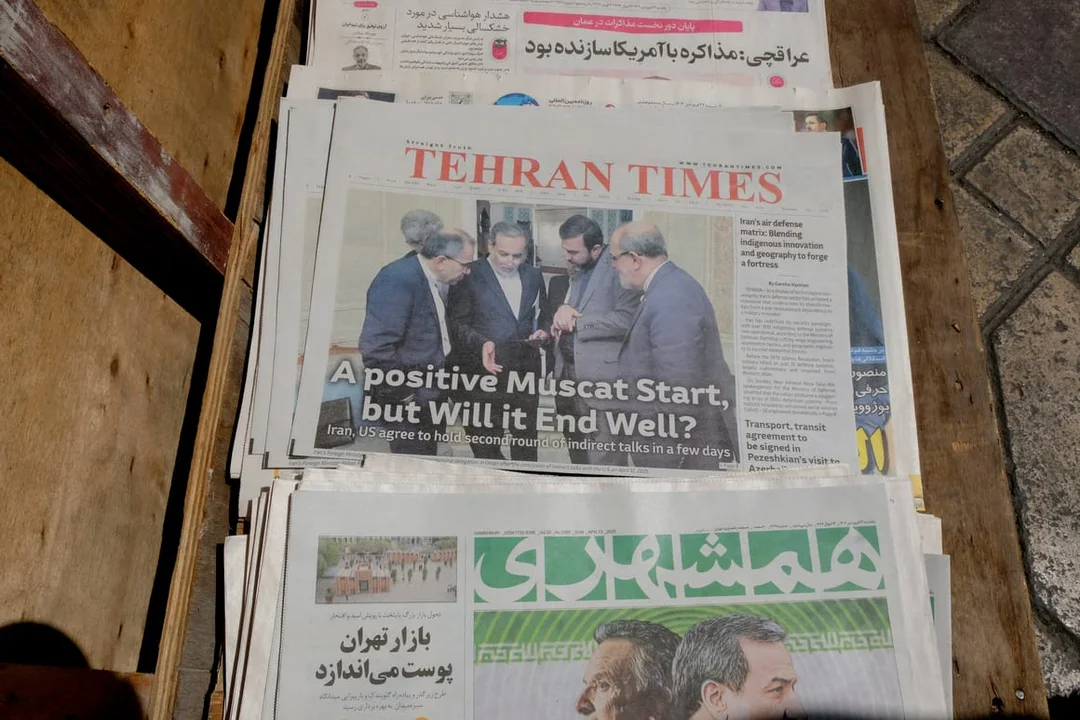
Is Trump Set to Rewrite History with Iran’s Nuclear Deal?
In a surprising twist to U.S.-Iran relations, former President Donald Trump, known for his harsh criticism of the Obama-era nuclear deal with Iran, is reportedly seeking to broker a new agreement. This drastic shift raises many questions: Can Trump truly achieve a better deal? What has prompted this change, and how might it impact U.S. foreign policy moving forward?
For years, Trump has denounced the original 2015 nuclear deal, famously declaring it "one of the worst deals ever made by any country in history." Following his withdrawal from the agreement in 2018, tensions soared, with Trump portraying Iran as a leading aggressor in the Middle East. However, as the geopolitical landscape has shifted, so too have Trump's strategies. In April 2025, negotiations between the U.S. and Iran will commence, with both sides seemingly at a crossroads that could redefine their diplomatic ties for years to come.
Trump’s motivations appear rooted in new intelligence reports suggesting that Iran's nuclear capabilities have advanced significantly since he left office. The Iranians have reportedly increased uranium enrichment to levels dangerously close to bomb-grade. This alarming development may be prompting Trump to reconsider his stance, as he recognizes that the potential consequences of a nuclear-armed Iran could extend beyond the Middle East.
"Iran only got this far because Trump tore up the last nuclear deal," argues David Sanger, a journalist intimately familiar with U.S. foreign policy. If Iran continues its path toward nuclear weaponry, Trump and his administration may feel pressured to take military action, a scenario that would have irreversible implications for both nations.
In contrast to Trump's original demands—total dismantlement of Iran's nuclear program—the current conversations hint at a willingness to explore more pragmatic solutions. The Iranians, well aware of their precarious position after recent military setbacks in regional conflicts, are likely to negotiate for terms that would allow them to maintain some level of nuclear capability while gaining relief from crippling economic sanctions.
This duality of intentions—whereby Iran seeks to preserve its power and the U.S. aims for complete disarmament—creates a backdrop riddled with complexities. According to analysts, any agreement will need to provide Iran with sufficient incentives, such as lifting sanctions, to agree to any limitations on its nuclear program.
As negotiations begin, observers remain skeptical yet hopeful. "The chance is pretty good that a deal could be reached," Sanger suggests. Still, with high-stakes dynamics at play and both sides holding fundamentally different visions for a new deal, negotiations could quickly veer off course.
In the coming weeks, as Trump and his team craft a proposal that seeks to distinguish itself from the previous agreement, the world will be watching closely. Can Trump negotiate a deal that is substantially better than the one he dismantled, or will he end up rehashing the very terms he so vehemently opposed? Only time will tell, but the ramifications of these talks on international relations are sure to be profound.
As this narrative unfolds, we invite readers to consider the implications of a renewed nuclear deal. What do you think would be a fair compromise between the U.S. and Iran? Share your thoughts in the comments below!
Can you Like
As tensions escalate following a recent temporary ceasefire in the ongoing conflict between Russia and Ukraine, the prospect of peace talks appears increasingly uncertain. President Donald Trump, who ...
Amid escalating tensions revolving around trade negotiations, the U.S. and China stand at a critical crossroads. Recently, China issued a stern warning to nations against 'appeasing' the U.S. in light...
With the ascendancy of Silicon Valley's influence coinciding with political upheavals across the United States, an urgent question arises: Is it too late to reclaim control from Big Tech? Recent devel...